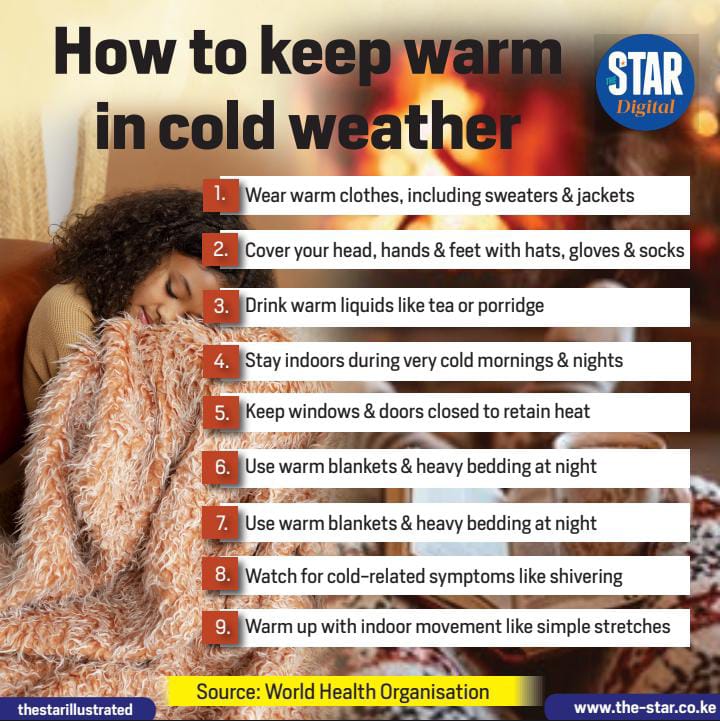 To stay warm in cold weather, layer your clothing
To stay warm in cold weather, layer your clothingNot keeping warm in cold weather can lead to serious health risks.
Prolonged exposure may cause hypothermia, where body temperature drops dangerously low, leading to confusion, fatigue, and even unconsciousness.
Cold weather can worsen existing conditions like asthma, arthritis, and cardiovascular issues.
It may also increase the risk of respiratory infections, such as colds or pneumonia.
In extreme cases, especially among the elderly, very young, or chronically ill, cold exposure can be fatal if not addressed promptly.
To stay warm in cold weather, layer your clothing—start with a moisture-wicking base, add insulating layers like wool or fleece, and top with a windproof jacket.
Keep your extremities covered with gloves, a hat, and thick socks, as heat escapes quickly through your head, hands, and feet.
Choose insulated boots to keep your feet dry and warm.
Drink warm fluids and eat regularly to maintain energy levels and body heat.
Stay active to boost circulation but avoid sweating, which can make you colder.
Indoors, use blankets, hot water bottles, or space heaters, and block drafts with door stoppers or heavy curtains.
Stay dry at all times—wet clothes or skin cool the body rapidly.















